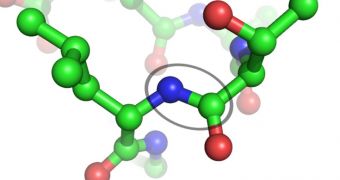A group of investigators from the United Kingdom announces the discovery of a new stage in the process of protein production. This is one of the critical functions of any cell, and proteins serve a huge variety of roles. Some of these molecules can even influence two or more other process, rather than being exclusively-assigned to a single task. With their new breakthrough, researchers at the University of Manchester have taken a new step towards innovating disease research and drug design practices.
When, for example, pathogens invade the human body, or when cells do not receive sufficient food, this is called stress. When cells are stressed, the way in which they produce protein changes. And we're not taking here about the types of molecules being synthesized, but rather about the actual manner in which this is done. With the discovery of the new stage, it may be possible for experts to look at the cascade of phenomena that result in proteins more closely. This could in the future allow scientists to find new targets for drugs. The medication could be aimed at eliminating the influence of stress of protein production.
“We investigated how simple yeast cells sensed and responded to changes in their nutrition, specifically to starvation for amino acids, which are essential building blocks for proteins. Now we know there is another important step in this process, one that is particularly important in the cellular response to stress,” explains UM Faculty of Life Sciences expert Dr Graham Pavitt, who was a co-leader of the new investigation, alongside colleague Dr Martin Jennings.
“Although we used yeast cells in our study, there is sufficient similarity in the mechanism across all cells to suggest that the new regulatory function operates in a similar or identical manner in mammalian cells, including man. Further work is now required to determine if these new findings will have consequences for our deeper understanding of human health and disease,” the expert adds. Details of the new investigation are published in the May 20 issue of the top scientific journal Nature, PhysOrg reports.

 14 DAY TRIAL //
14 DAY TRIAL //